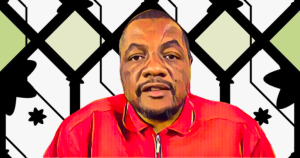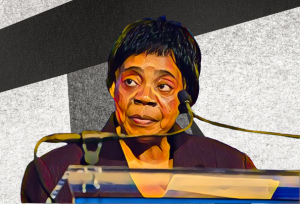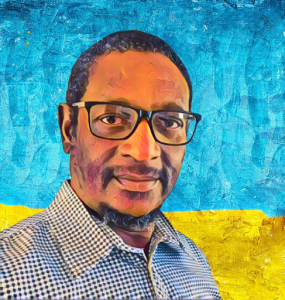Key Points
- Zimbabwean journalists are shaping society through fearless reporting.
- They highlight critical issues like corruption, gender equality, and human rights.
- Their impactful work inspires change and informs public dialogue.
Through their efforts, the below reporters of Zimbabwe continues to inform and empower the public through agenda setting, new story development, provision of local perspectives and power of accountability despite hurdles of government and scarce resources. Here are five outstanding Zimbabwean reporters who have shaped the media scene.
1. Hopewell Chin’ono

A member of International Academy of Media Science, Hopewell Chin’ono is an acclaimed documentary producer, filmmaker and investigative journalist Television Journalism Master’s degree holder from City University in London has previously served CNN and BBC among other global networks.
Chin’ono is famous for telling Zimbabwe truths of government and corruption. They include COVID-19 relief fund embezzlement which he has unearthed through his investigations are some of the familiar crimes of corruption.
His journalism includes the operation of the risky re-porting that has earned him recognition such as the CNN African Journalist of the Year Award.
Chin’ono opposes routine corruption and speaks for better governance through promoting transparency and accountability from his blog.
He eventually opposes injustice and remains a fighter for Zimbabwean media freedom despite arrests and harassments.
2. Edna Machirori

The first woman to edit a national mainstream newspaper Machirori is among the pioneer Zimbabwean journalists. She has trained so many new reporters having practiced in the media for many years.
Machirori’s career paved way for other women journalists from Zimbabwe who had to break barriers. Her reporting sincerity on social justice issues and women rights brought the underprivileged voices to front front. Amongst the many awards she has been accorded includes an award by the International Women’s Media Foundation.
Years back, Machirori has inspired generations of women reporters with effort into the media profession. She has gained respect in the media scene of Zimbabwe through her support of gender equality, her ability to handle sensitive social issues.
3. Tendai Ruben Mbofana

Self Employed Columnist, Social Commentator, Human Rights activist Ruben Mbofana famous for his opinions on issues prevalent in Zimbabwe in both local and international newspapers and magazines.
Mbofana’s work is all about oppression and voices of the poor are given a floor to be heard. His provocative pieces release corruption, poverty, and violation of human rights.
His observations have made him a favorite and frequently read writer in Zimbabwe and in other parts of the world.
He supports change and encourages others to express their opinions freely from his official social network account. He is able to run responsibility and change since he not only can speak but also articulate some hardships of the ordinary Zimbabweans.
4. Rumbidzai Takawira

Often social media known as Newsbae, Rumbidzai Takawira is, a broadcast journalist and television presenter. Zimbabwe’s National University of Science and Technology awarded her a degree in Journalism and another in Media Studies.
Thanks however to her rather intriguing appearance on national television, Takawira has become a household name in Zimbabwe. They are political analysis and current affairs and these help reduce the gap between the legislators and the public and therefore assists her.
Takawira a youthful journalist represent the following generation of media professionals from Zimbabweans. In this aspect she promotes increase in civic participation and increased awareness attributed to her influence in political and government affairs among youths.
Her ability to connect with audiences has revolutionized the work done by reporters in engaging citizenship.
5. Chipo Sabeta

Chipo Sabeta the reputable and active sports writer who has more than ten years in that field. She is a media and communications graduate from Zimbabwe Open University.
Reporting for important athletic events and focusing on the Zimbabwe’s athletes, Sabeta has successfully works in the environment that very often is male-dominated.
These are practices that have been very important in eradicating stereotype and promoting women achievement for women in sports.
The author Sabeta underlines the necessity to have diversity within sports writing. In recommending the idea of following one’s dream in athletics and other professions, she has inspired many people using positive stories of Zimbabwean athletes particularly females. This respect in the business comes from the fact that she singles out the talent of Zimbabwe.
Conclusion
All five reporters Hopewell Chin’ono, Edna Machirori, Tendai Ruben Mbofana, Rumbidzai Takawira, Chipo Sabeta are priceless contributors to Zimbabwean media in one way or another. People of this era persistently seeking truth, social justice or progress not only define the public but also drive change. Continuing from their work is invaluable offering fresh outlooks on the political, social, and cultural processes in Zimbabwe.


